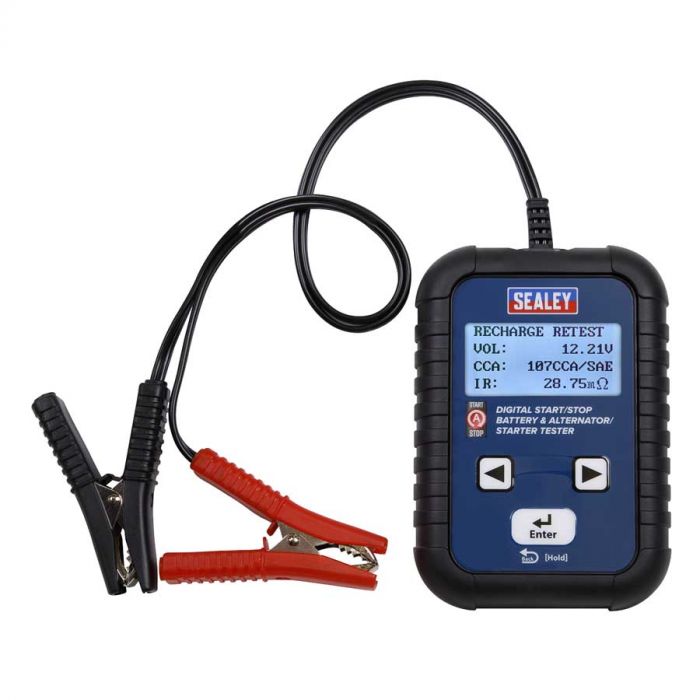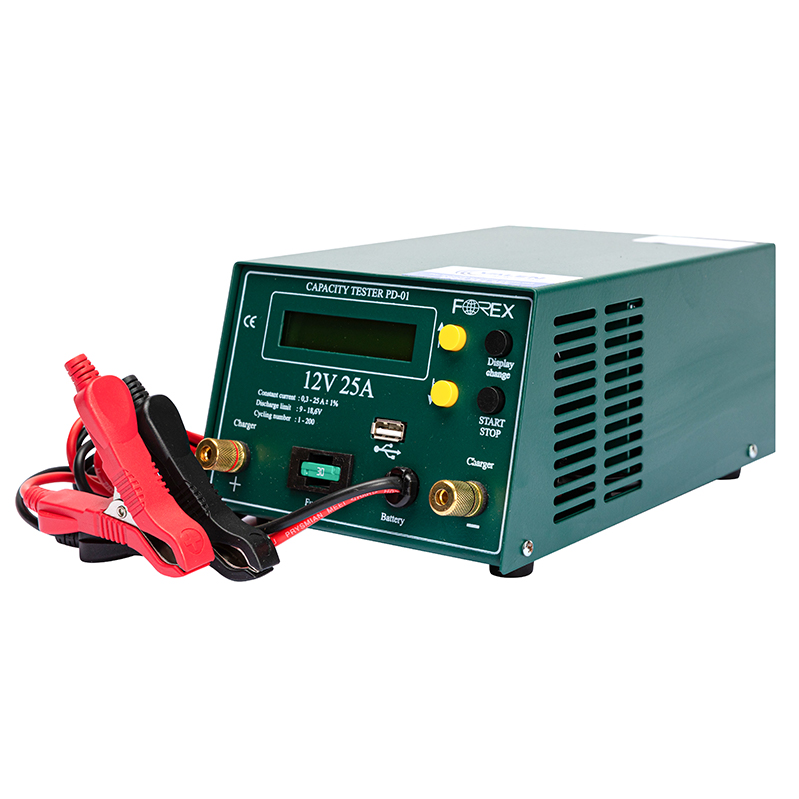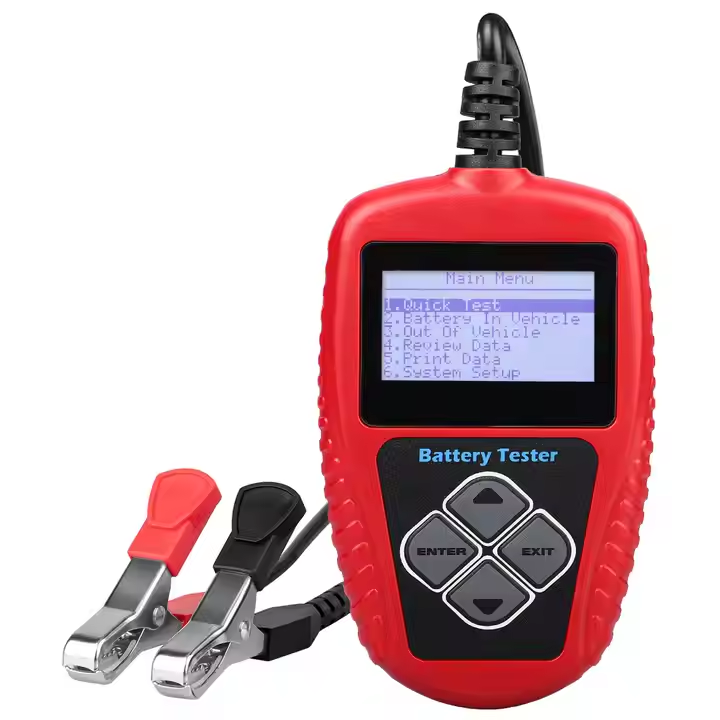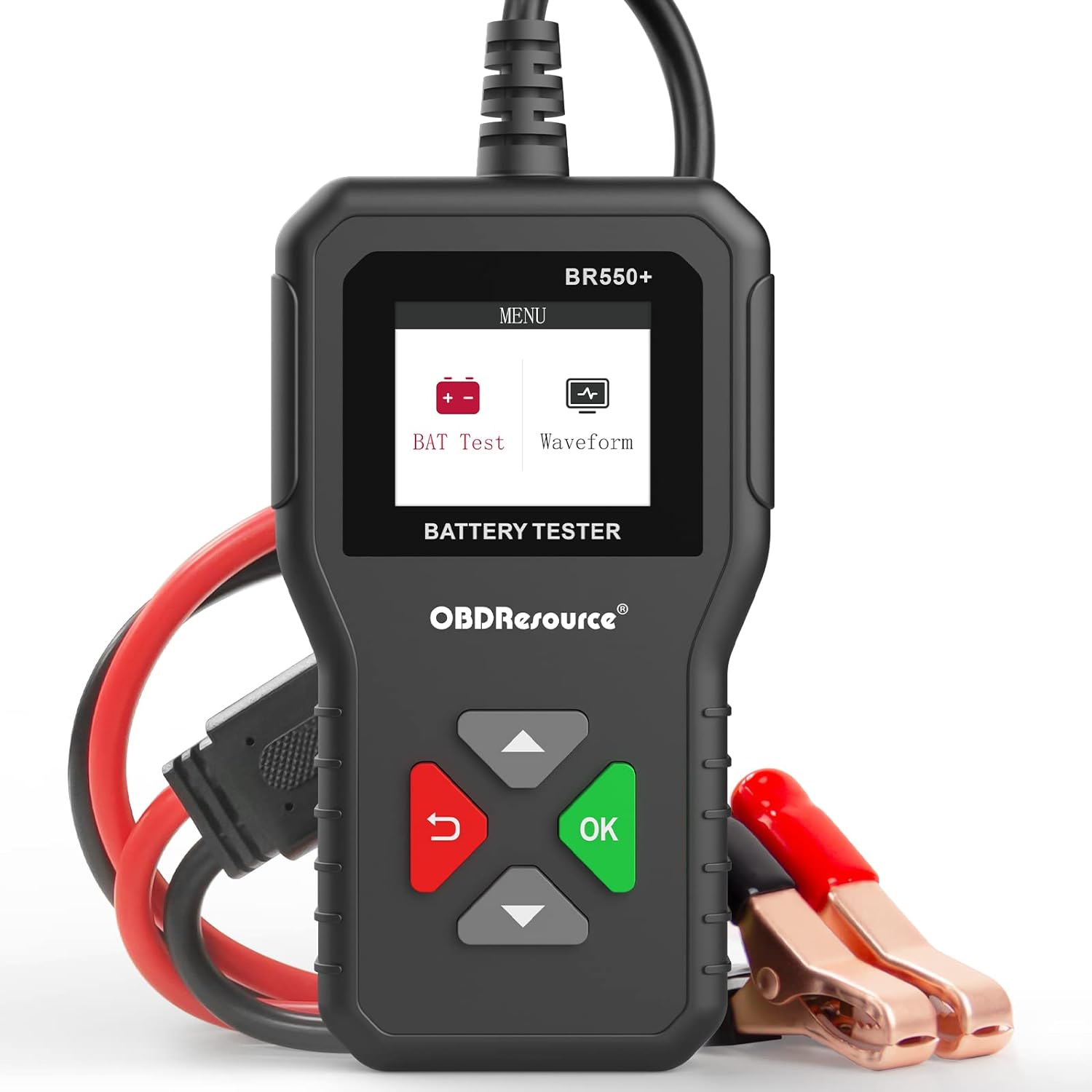
Unveiling the Best Battery Tester: Power Up Your Knowledge
Understanding Battery Testers
Best battery tester play a crucial role in maintaining the health and efficiency of various power sources. These devices measure key parameters such as voltage, capacity, and internal resistance to determine a battery’s condition. Different types of battery testers cater to specific needs, ranging from simple voltage checkers to advanced analyzers. Basic testers provide quick go/no-go results, while more sophisticated models offer detailed analytics and predictive capabilities. Choosing the right tester depends on factors like the types of batteries being tested, frequency of use, and desired level of detail in results.
Professional-grade testers often include features like data logging and temperature compensation for more accurate readings. Understanding these aspects helps in selecting the most suitable battery tester for specific requirements. Moreover, regular battery testing can prevent unexpected power failures, extend battery life, and reduce unnecessary replacements. This practice not only saves money but also contributes to environmental sustainability by minimizing battery waste. As technology advances, battery testers continue to evolve, offering more precise measurements and user-friendly interfaces.

Top Features to Look for in Battery Testers
When searching for the best battery tester, several key features stand out as essential. Firstly, accuracy stands paramount. A good tester should provide consistent and reliable results across multiple tests. Versatility also plays a crucial role, as the ability to test various battery types and sizes increases the tester’s utility. Many top-tier testers offer multiple testing modes, including quick checks and more comprehensive analyses. User-friendly interfaces make operation simpler, especially for those less familiar with technical details. Durable construction ensures the tester withstands frequent use and potential accidental drops.
For professional use, data logging capabilities prove invaluable for tracking battery performance over time. Some advanced models include temperature compensation, which adjusts readings based on ambient conditions for more accurate results. Safety features like reverse polarity protection safeguard both the tester and the user. Additionally, the ability to test batteries while they remain in devices can be a significant time-saver. Clear, easy-to-read displays, preferably backlit for use in low-light conditions, enhance usability. Portable designs with long-lasting internal batteries suit users who need to perform tests in various locations. By considering these features, consumers can identify battery testers that offer the best combination of functionality, reliability, and value for their specific needs.
Best Battery Tester for Household Use
For household applications, the ZTS Multi-Battery Tester MBT-1 stands out as an excellent choice. This tester offers a perfect balance of simplicity and functionality for testing a wide range of common household batteries. It can evaluate the condition of AA, AAA, C, D, and 9V batteries, covering most types found in home devices. The MBT-1 uses a pulse load test to provide more accurate results than simple voltage checks. Its clear LED display indicates battery condition as good, weak, or replace, making it easy for anyone to interpret the results. The tester’s compact size and battery-powered operation enhance its portability, allowing for convenient testing throughout the home.
Users appreciate its durability and long-lasting construction, ensuring years of reliable service. While it may seem pricier than basic testers, its accuracy and versatility justify the investment for households seeking to optimize battery usage. The MBT-1 helps reduce waste by identifying truly depleted batteries, preventing the premature disposal of those still holding a charge. Additionally, its ability to test rechargeable batteries adds to its versatility, supporting the growing trend of using these eco-friendly power sources in household devices. Overall, the ZTS MBT-1 proves an invaluable tool for maintaining efficient battery usage in any home.

Top Choice for Automotive Battery Testing
In the realm of automotive battery testing, the Schumacher BT-100 Battery Load Tester emerges as a top contender. This robust device caters specifically to the high-capacity batteries found in vehicles, offering both accurate readings and durability. The BT-100 performs a full-fledged load test, simulating the actual draw on a car battery during startup. This method provides a more comprehensive assessment of the battery’s condition than simple voltage checks. The tester features a large, easy-to-read display that shows voltage readings and indicates the battery’s overall condition. Its heavy-duty clamps ensure a secure connection to battery terminals, even in tight engine compartments.
The Schumacher BT-100 can test both 6V and 12V batteries, covering a wide range of vehicle types. It also includes a check for the alternator’s charging system, offering a more complete picture of the vehicle’s electrical health. The tester’s rugged construction withstands the harsh conditions often found in automotive environments. While it requires some basic knowledge to interpret the results, its straightforward operation makes it accessible to both professionals and car enthusiasts. By providing accurate assessments of automotive batteries, the BT-100 helps prevent unexpected breakdowns and extends battery life through timely replacements. Its reliability and comprehensive testing capabilities make it an invaluable tool for mechanics, fleet managers, and conscientious car owners alike.
Professional-Grade Battery Analyzer
For those requiring in-depth battery analysis, the Cadex C7400ER Battery Analyzer stands out as a top professional-grade option. This sophisticated device offers comprehensive testing and conditioning capabilities for a wide range of battery chemistries, including lithium-ion, nickel-metal hydride, and lead-acid. The C7400ER performs various tests, including capacity assessment, internal resistance measurement, and self-discharge evaluation. Its programmable nature allows users to create custom test protocols tailored to specific battery types or applications. The analyzer features four independent channels, enabling simultaneous testing of multiple batteries. Its large LCD screen provides detailed graphical representations of test results, facilitating easy interpretation of complex data. The Cadex C7400ER includes data logging and reporting functions, essential for maintaining detailed records in professional settings.
Its ability to recondition batteries can often extend their useful life, providing significant cost savings in industries relying heavily on battery-powered equipment. While the high price point and complex features may deter casual users, professionals in fields like healthcare, telecommunications, and electronics manufacturing find its capabilities indispensable. The analyzer’s accuracy and reliability make it a valuable tool for quality control processes and warranty claim assessments. Additionally, its firmware can be updated to accommodate new battery technologies, ensuring long-term relevance. For organizations prioritizing precise battery management and optimization, the Cadex C7400ER proves an invaluable investment.

Best Battery Tester for Small Electronics
The ISDT BG-8S Battery Checker emerges as an excellent choice for testing batteries in small electronics. This compact device specializes in evaluating lithium-polymer (LiPo) batteries commonly used in drones, RC vehicles, and portable electronics. The BG-8S can test batteries with up to 8 cells, covering a wide range of configurations. Its high-resolution color display provides clear, easy-to-read information on each cell’s voltage, as well as the overall battery voltage. The tester’s ability to detect voltage imbalances between cells proves crucial for maintaining LiPo batteries safely and efficiently. It also includes a battery internal resistance test, offering insights into the battery’s overall health and performance capabilities.
The ISDT BG-8S features a user-friendly interface with intuitive controls, making it accessible even to hobbyists new to battery management. Its compact size and lightweight design enhance portability, allowing for easy field use. The device powers itself from the battery being tested, eliminating the need for separate batteries or power sources. While focused primarily on LiPo batteries, it can also check other lithium-based chemistries like Li-ion and LiFe. The tester’s accuracy and comprehensive cell information make it an invaluable tool for enthusiasts and professionals working with high-performance small electronics. By facilitating proper battery maintenance, the BG-8S helps users maximize the lifespan and safety of their expensive LiPo batteries.
Innovative Smart Battery Tester
The Foxwell BT705 Battery Analyzer represents a new generation of smart battery testers. This device combines traditional testing capabilities with modern connectivity features, offering a comprehensive solution for battery management. The BT705 can test various battery types, including conventional lead-acid, AGM, and gel batteries, making it versatile for both automotive and marine applications. It performs a range of tests, including voltage measurement, cold cranking amps (CCA) assessment, and health evaluation. The tester’s standout feature is its Bluetooth connectivity, allowing it to pair with smartphones or tablets. This functionality enables users to view detailed test results, save historical data, and even generate professional reports through a dedicated app.
The Foxwell BT705 boasts a user-friendly interface with a clear, backlit display for easy reading in various lighting conditions. Its built-in thermal printer allows for immediate hard copies of test results, a valuable feature for professional mechanics. The device includes safety features like reverse polarity protection and over-voltage alerts. Its rugged construction withstands the demands of regular use in workshop environments. The BT705’s ability to test batteries both in and out of vehicles adds to its convenience. By combining accurate testing with smart connectivity, this analyzer bridges the gap between professional-grade tools and user-friendly consumer devices. It proves particularly useful for small auto repair shops and enthusiasts who desire detailed analytics without investing in more expensive equipment.
Best Budget-Friendly Battery Tester
For those seeking a reliable battery tester without breaking the bank, the AstroAI Digital Multimeter TRMS 6000 offers exceptional value. While primarily a multimeter, its battery testing capabilities make it a versatile tool for various applications. The device can measure voltage, current, and resistance, providing a comprehensive assessment of battery condition. Its large, backlit LCD screen ensures clear visibility of readings in any lighting condition. The AstroAI multimeter includes auto-ranging functionality, simplifying operation for users less familiar with electrical measurements. It can test a wide range of batteries, from small button cells to car batteries, thanks to its broad voltage measurement range.
The device’s durable construction and rubber holster protect it from accidental drops and daily wear and tear. Safety features like overload protection safeguard both the user and the device during testing. While it may not offer the specialized functions of dedicated battery testers, its versatility compensates by serving multiple electrical testing needs. The inclusion of test leads and a 9V battery enhances its ready-to-use appeal. For DIY enthusiasts, homeowners, and even professionals on a budget, the AstroAI Digital Multimeter provides a cost-effective solution for basic battery testing and general electrical troubleshooting. Its combination of affordability, functionality, and durability makes it an excellent entry-level option for those new to battery testing.

Choosing the Right Battery Tester for Your Needs
Selecting the ideal battery tester requires careful consideration of several factors. Firstly, identify the types of batteries most frequently used. Different testers specialize in various battery chemistries and sizes, from small button cells to large automotive batteries. Consider the level of detail needed in test results. Basic users might only require simple good/bad indicators, while professionals may need comprehensive analytics including internal resistance and capacity measurements. The frequency of use also plays a role in the decision. Occasional home use may only warrant a simple, budget-friendly option, whereas frequent professional use justifies investing in a more advanced, durable model.
Evaluate the tester’s ease of use, especially if multiple people with varying technical skills will operate it. Clear displays and intuitive interfaces enhance user experience. For those working in specific industries, look for testers that comply with relevant standards or offer industry-specific features. Portability becomes crucial for field technicians or those testing batteries in multiple locations. Additionally, consider future needs and potential changes in battery technology. Some high-end testers offer firmware updates to stay current with new battery types. By carefully weighing these factors against budget constraints, users can select a battery tester that best meets their current and future needs, ensuring efficient and accurate battery management.
The Future of Battery Testing Technology
As battery technology continues to evolve, so too does the field of battery testing. Future battery testers are likely to incorporate more advanced analytical capabilities, leveraging artificial intelligence and machine learning algorithms. These smart testers may predict battery failure more accurately, optimizing replacement schedules and reducing downtime. Integration with the Internet of Things (IoT) could allow for continuous, remote monitoring of battery health across large systems or fleets of vehicles. Advancements in electrochemical impedance spectroscopy may provide even deeper insights into battery internal processes and degradation mechanisms. As new battery chemistries emerge, particularly in the realm of renewable energy storage, testers will need to adapt quickly to these novel technologies.
Increased focus on sustainability may lead to testers that not only assess battery health but also provide information on recyclability and environmental impact. Miniaturization of testing technology could result in more portable, yet highly capable testers suitable for field use. Virtual and augmented reality might be incorporated into testing processes, offering intuitive visual representations of battery condition and guiding users through testing procedures. As electric vehicles become more prevalent, specialized testers for EV batteries and their complex management systems will likely see significant development. These advancements in battery testing technology will play a crucial role in managing the growing reliance on battery-powered devices and systems across various industries and in everyday life.

